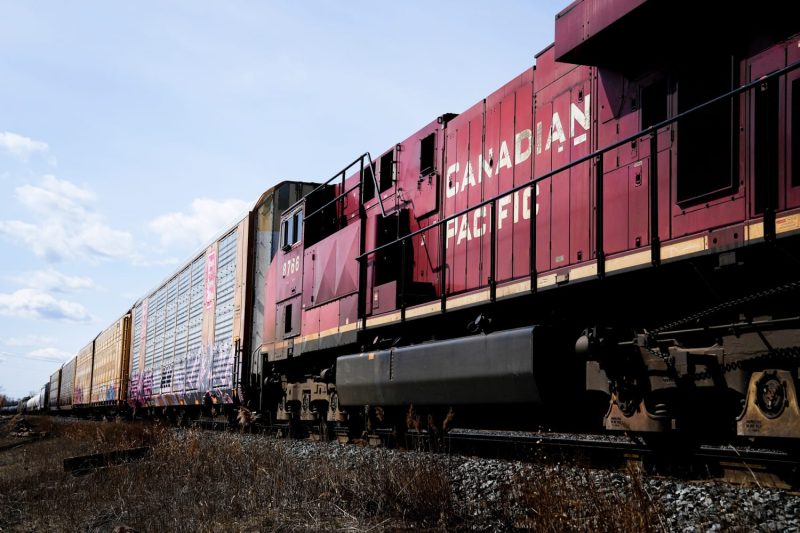The possible work stoppage at Canada’s two largest railroads, Canadian National (CN) and Canadian Pacific (CP), has raised significant concerns about the potential disruptions to the U.S. supply chain. The impact of a potential labor strike or lockout at these railways would be felt not only in Canada but also south of the border in the United States. With both CN and CP playing crucial roles in facilitating cross-border trade and transportation of goods between the two countries, any halt in their operations could have far-reaching consequences.
One of the key issues at the heart of the negotiations between the railroads and their workers is the issue of working conditions and compensation. Workers at CN and CP are seeking improvements in their working conditions, including better rest periods, increased job security, and fair compensation for their services. The rail companies, on the other hand, are grappling with the need to keep their operations running smoothly and efficiently while also addressing the concerns of their employees.
The potential work stoppage comes at a time when the global supply chain is already under strain due to various factors such as the COVID-19 pandemic, trade disputes, and natural disasters. The disruption in rail services between Canada and the U.S. could further exacerbate the existing challenges faced by businesses relying on the timely and reliable transportation of goods. Industries that heavily depend on the rail network, such as manufacturing, agriculture, and retail, would be among the most affected by any interruptions in the railway operations.
Moreover, the interconnected nature of the supply chain means that delays or disruptions in one part of the network can have a domino effect on other sectors and regions. For example, a work stoppage at CN or CP could lead to congestion at ports, increased transportation costs, and shortages of goods on both sides of the border. This scenario would not only impact businesses but also consumers who may face higher prices and delays in receiving essential goods.
To mitigate the potential risks associated with a work stoppage at Canada’s major railroads, businesses are advised to develop contingency plans and diversify their transportation routes. By identifying alternative modes of transport, such as trucking, air cargo, or other rail providers, companies can reduce their reliance on CN and CP and lessen the impact of any disruptions in the supply chain. Additionally, maintaining open communication with suppliers, customers, and logistics partners can help in proactively addressing challenges and finding solutions to minimize the effects of a possible rail strike or lockout.
In conclusion, the looming threat of a work stoppage at Canada’s two largest railroads, CN and CP, poses a serious risk to the U.S. supply chain and cross-border trade. The ongoing negotiations between the rail companies and their workers underscore the importance of addressing labor concerns while ensuring the continuity of critical transportation services. By preparing for potential disruptions and exploring alternative transportation options, businesses can enhance their resilience and adaptability in the face of unexpected challenges in the supply chain.
